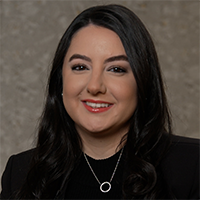Transcript
This transcript has been edited for clarity.
Fernando J. Martinez, MD: Hi. My name is Fernando Martinez. I'm the chief of pulmonary and critical care medicine at Weill Cornell Medicine. I'm with one of my colleagues, Nadine Chahine, who is a respiratory nurse, a nurse practitioner student. Our job today on Care Cues is to discuss the optimal communication strategies with patients and their family members for those individuals diagnosed with idiopathic pulmonary fibrosis (IPF).
So, Nadine, you have been involved in the management of a lot of patients who have IPF. Can you give us some of your insights regarding how to best initiate a communication between the patient and their family and, in particular, on how to introduce some of these concepts of shared decision-making?
Nadine Chahine, BSN, RN: When the patient is first diagnosed, it's a very emotional process. I feel like before we start any medication treatment or discussing options on how to manage their illness, their psychological status is what's important. We need to be there for them emotionally and make them feel like we are there for support throughout the process.
Martinez: What's the best way to get a sense of what they want to accomplish with therapy? Do you think all patients have the same goals?
Chahine: All patients have different goals. For example, we can have a patient who doesn't want to take the medication, because they don't want to have any side effects. Other patients are willing to try the medication, and they are fully aware of side effects and how to deal with them.
Martinez: That's the key thing. One of the things that I've seen you do very effectively is to try to very early on in the process get a sense from the patient and the family, what do you want to do here? What is your goal? Do you want to live longer? Do you want to live better? Is it just quality of life? And how to measure that for an individual patient.
I've been in this field for 30 years. These discussions now take much longer than they took in the past because in the past, we had nothing we could do. Now you have two antifibrotics, multiple clinical trials, and a whole series of strategies to manage these medications.
This idea of shared decision-making, with the understanding that the ultimate decision of most importance is the patient's, is where I think there is the greatest challenge and the greatest time commitment that we need to provide. What do you think? Would you agree with that assessment?
Chahine: I definitely agree with you, Dr Martinez. Ultimately, it is the patient's decision. We can provide additional information, support, anything online, on the Pulmonary Fibrosis Foundation [website]. And in the end, we have to respect the patient's wishes.
Martinez: Let me ask you a follow-up question to that. OK, Nadine, I'm a patient. I look on the internet and I see these horrible numbers on the internet. How do you help patients interpret that so that it's something that they can process?
Chahine: They'll Google anything. They'll ask Google [about IPF], and Google will say "death," "side effects," or something else horrible.
Then I'll discuss with the patient that all medications have side effects. I will ask them if they've ever taken Tylenol or Advil in the past before, any over-the-counter cold medications, and if they had read the side-effect profile online for them.
I would say that in this situation, it can be the same. Side effects will vary from one to the other. We will pay all of the appropriate attention and take care of them if they were to experience any side effects from medication.
Martinez: I love this idea of [asking patients], have you ever taken a Tylenol? Because you're right. Or if you look at an antibiotic, you're like, oh my god, this is horrible. So it's very similar in that respect. Do you think the majority of patients can tolerate the antifibrotic agents?
Chahine: I feel like a majority of the patients can, if you titrate the drug up slowly and you determine whether the patient can tolerate the medication, especially if you educate the patient to have it with a large, nutritious meal. It's very important.
Martinez: Let me ask you a subsequent question about the role of lung transplantation, because that's really the therapy that has been shown most decidedly to improve survival. But when you bring up that to some patients, some react with, oh my god, lung transplant.
Chahine: When I discuss with the patient about lung transplant options, it is a little bit difficult because the patients would be really anxious about the subject. What's the worst that can happen from a lung transplant? Well, I'll live a better life. What are the chances that I'll get sick post–lung transplant?
But some patients are interested in it, and not all patients qualify for the lung transplant. And I feel like most patients are also nervous about the whole waiting process for the lung transplantation.
Martinez: Give me some sense of how you deal with the patient and their family for the emotional roller coaster that is this diagnosis and its treatment.
Chahine: Providing emotional support is just being there for the patient, listening to their concerns and their questions. I will find a resolution for the patient.
If they're not feeling well, if there's a medication issue that they're having, if there's something that they want to let their provider know and the provider is busy, if they have any questions, I'll listen closely. And I'll provide that emotional support for them.
Martinez: Nadine, one of the questions that I think is important for folks who are watching this to understand is the importance of family and caregivers in optimizing the outcome and quality of life for a patient. What do you think are the best strategies to include family caregivers in this entire journey that the patient makes?
Chahine: The best strategy to include the family and caregivers in the patient's disease process is to listen to their thoughts, if they support the patient's wishes. We may have some patients who don't want to do anything. They just want to just go. And then we have patients with their family members who want everything to be done for the patient, and they want them to live the longest life.
It's very important to include the patient's family members and loved ones to see how they feel about the situation because they are suffering too with the patient. It takes a big toll on them. So it's very important to include them in the decision-making.
Martinez: When you are coordinating the wishes that the patient has and the wishes that the family members have when they're not exactly the same, how commonly do you see that happening, this discrepancy between patients and families?
Chahine: It is commonly seen in our practice where there is a discrepancy between the patient and the family's decisions in their healthcare. Sometimes the patient can be just in denial and exhibiting signs of anger, where they just don't want to listen to anyone.
So you allow and you give time. Then you go in and you reeducate the patient, and you let them know about the available options. In the end, even after providing all of that to the patient, it is the patient's wishes.
Martinez: But it does seem like the nursing approach to being holistic in the management of the patient and their family unit is the optimal way of being able to guide a patient through such a difficult diagnosis. What do you think?
Chahine: I agree with you. The holistic approach is the best approach for this. And it feels nice. It is time-consuming. But I don't mind dedicating that time to them because I love to provide that emotional support. I love to make them feel comfortable. And it makes me feel good about myself when they tell me that they feel better after talking to me.
Martinez: Clearly one of the areas that I think is underappreciated, and is increasingly being appreciated now, is the vital importance of emotional support for patients and their families because this is really a roller coaster of a diagnosis.
Let me ask you another question — a difficult question, because this is always something that's most challenging. It is about the end of life, because unfortunately, IPF is a bad disorder. How do you yourself view maintaining some sense of mental stability?
Chahine: When I first started working with my patients with IPF, it was — and I still deal with it today — very sad. It's devastating. It's depressing. And it's a subject that's tough to talk and deal with. But I love to be there for my patients. I love to listen.
One time, I had a patient who told me, what you do is just as important as what the providers do because you help me feel better. I love talking to you. I love that you understand me.
Many times, I'll find myself crying with the patients. But I'll go home at the end of my shift, and I'll feel something good in my heart, rewarding, that I was able to help the patient and even till their end-of-life stages.
Martinez: You and I have been discussing for a while here the approach to communication and the strategies for patients. If I asked you what would be the single concept that you would want the audience members to take away from this discussion, what would that be?
Chahine: The importance of empathy, compassion, care, love, and support, including the family caregivers and the caretakers, and that patients share decision-making and providing the best high quality of life.
Dr Martinez, what is one thing you would like the audience to take away from today's discussion?
Martinez: I think that the key component that the audience should take away is the importance of teamwork — of a multidisciplinary approach to the management of a patients with IPF that includes clinicians, you and I, and the patient's caregiver and the patient. And there should be a free exchange of information that is as accurate as possible so that collaborative approach can provide the patient with the approach that they feel most comfortable for to maximize their quality of life.
Nadine, thank you very much for such a stimulating and lovely discussion that we've had. I want to thank all of you for participating and listening to this Care Cues as we try to optimize communication strategies for patients and their family members in the setting of a diagnosis of IPF.
Medscape © 2023 WebMD, LLC
Any views expressed above are the author's own and do not necessarily reflect the views of WebMD or Medscape.
Cite this: Optimizing Communication in Patients With IPF - Medscape - Mar 07, 2023.

















Comments